Artemis Fowl Drops a Frustrating New Trailer
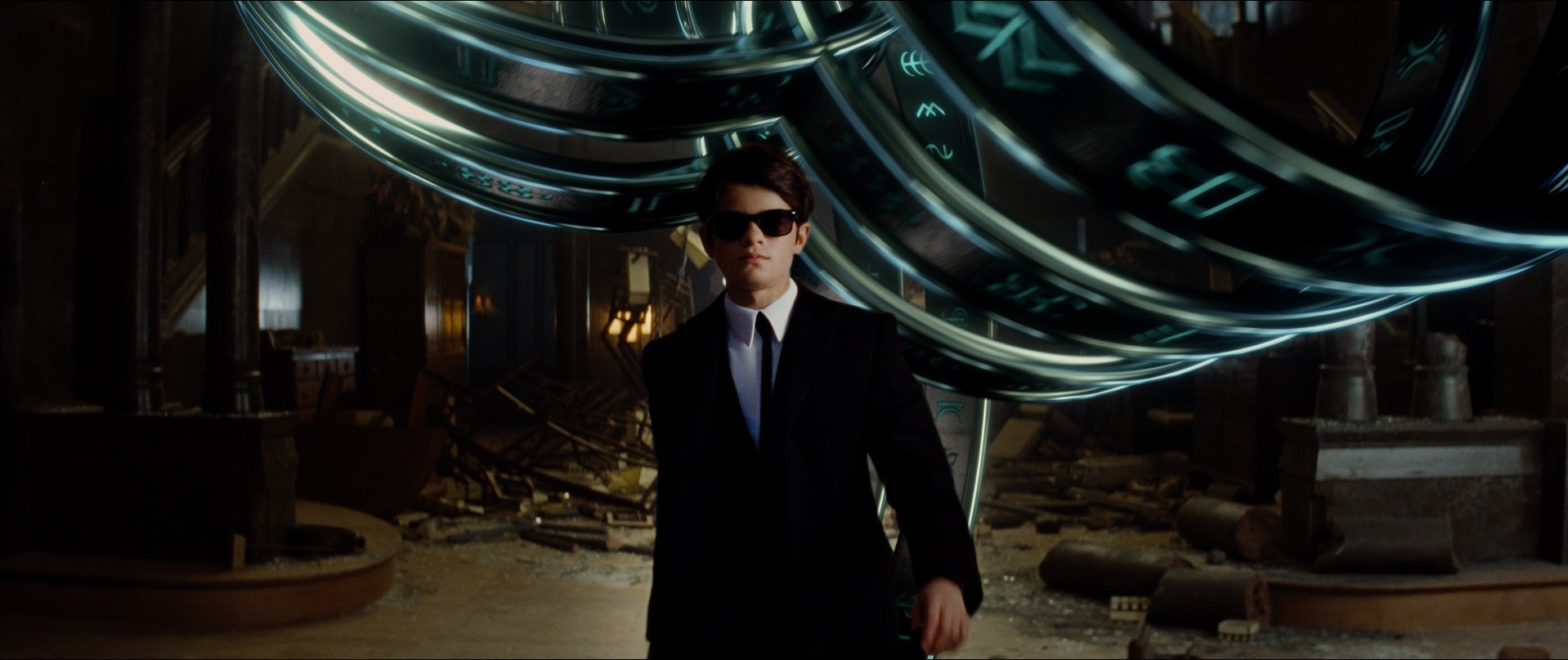
Artemis Fowl, the upcoming Disney movie adaption of Eoin Colfer’s books, has dropped a new trailer. Unfortunately, it’s not all good news.
There are some parts that look exciting. The CGI contains no first-attempt-at-Sonic nightmares, and actually looks very impressive at a brief glimpse: the troll looks appropriately frightening, Holly’s wings flutter beautifully, and the image of the fairy that was first shown to us in the teaser trailer is still striking.
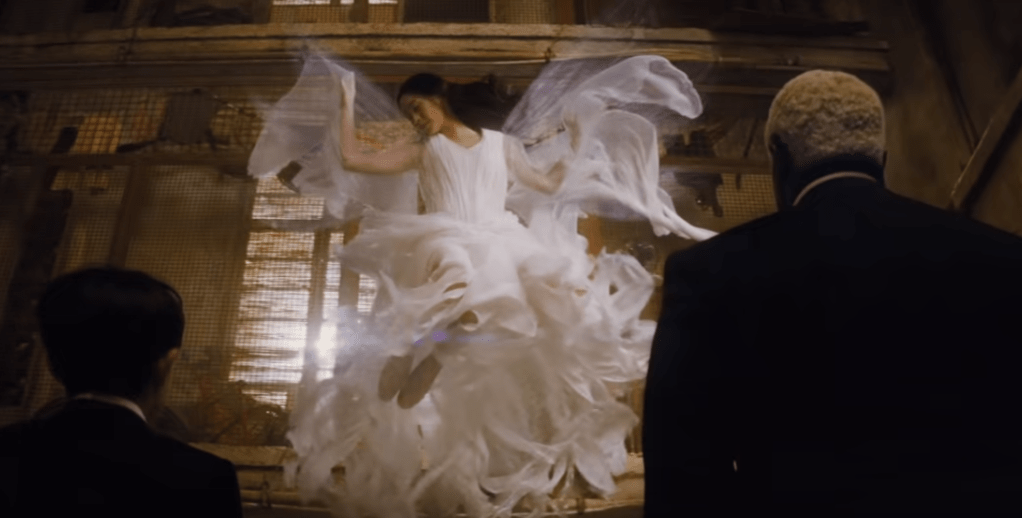
The soundtrack to the trailer is mostly the generic fantasy backdrop we might expect, but there are flashes of Campfire’s “Start It Up” – weaving the two together, orchestral music and rap, shows a good understanding of what Artemis Fowl is all about: traditional myths made modern.
With Irish lead actors and an Irish director, the film also seems to have a keen feel for its Irish roots – something Eoin Colfer himself noted with approval in a recent interview. He’s shown appreciation for changes that have been made, related to diversity as well as technology.
“There were many other changes such as gender switches, plot twists, and backstory which I am one hundred percent behind. I think inclusivity is a wonderful thing, and I am all for switches and changes if it means the best person gets the job.”
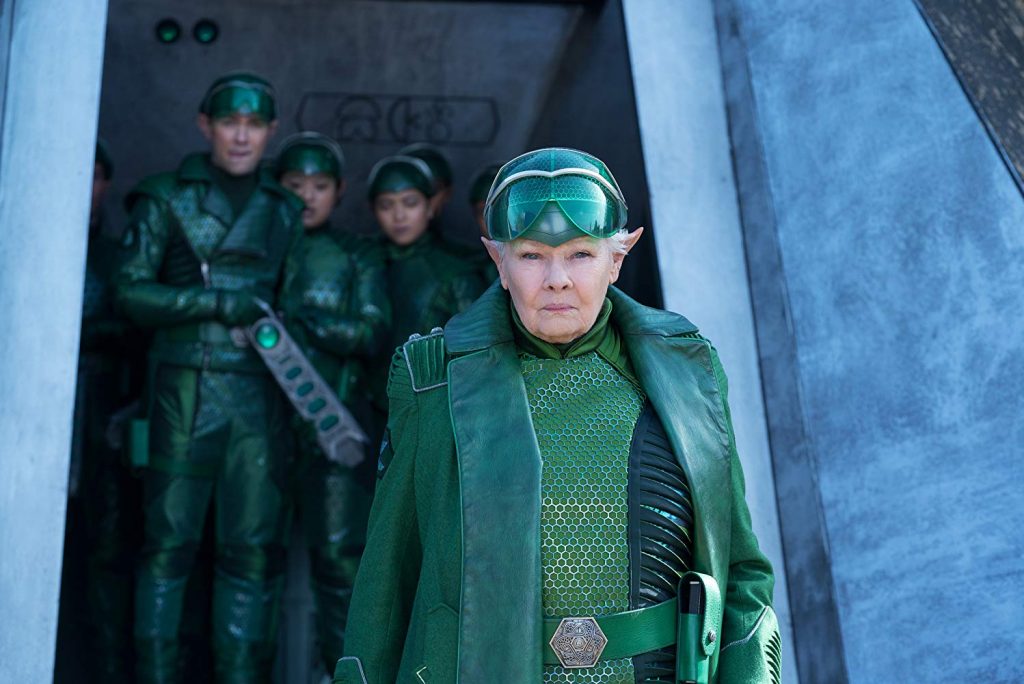
So far so good. When we get to looking at what we can glean from the trailer about the actual plot, though, it looks like the film’s effort to understand its source material hit a limit early on.
In the first book of Colfer’s series, which was released back in 2001, Artemis Fowl II single-handedly tracks down a fairy who has no magic. He manipulates her into giving him access to her copy of The Book of the People, a fairy text, which he alone then translates into English and uses to locate and kidnap another fairy – this time, one with magic. Throughout these first chapters, we’re shown again and again that Artemis Fowl is one step ahead. He’s calculated. And while his bodyguard Butler is there to offer physical protection, as far as knowledge of the fairies goes, Artemis is doing it entirely alone.
I remember reading Artemis Fowl for the first time, and stopping at the end of the first chapter just to think how incredible it was that a twelve-year-old boy had managed, by himself, to uncover the fairy realm. Not only that, but he was determined to turn it to his advantage. He’s an anti-hero, but he’s fascinating, because he’s incredibly intelligent and utterly single-minded, particularly in the early books of the series.
The Artemis of the movies seems to have been taken in a different direction. Rather than being one step ahead, and discovering the entire fairy realm existing under the Earth on his own, this Artemis has to be led by Butler to find a basement existing under the floor of his own house.
And instead of beginning the Fowls’ dealings with the fairies through sheer determination and cleverness, this Artemis inherits knowledge from his father. It is, as Butler calls it, his “destiny”. The Artemis of the books had no legacy of information to rely on – his belief in the supernatural and his certainty that he could harness its power were entirely his own.
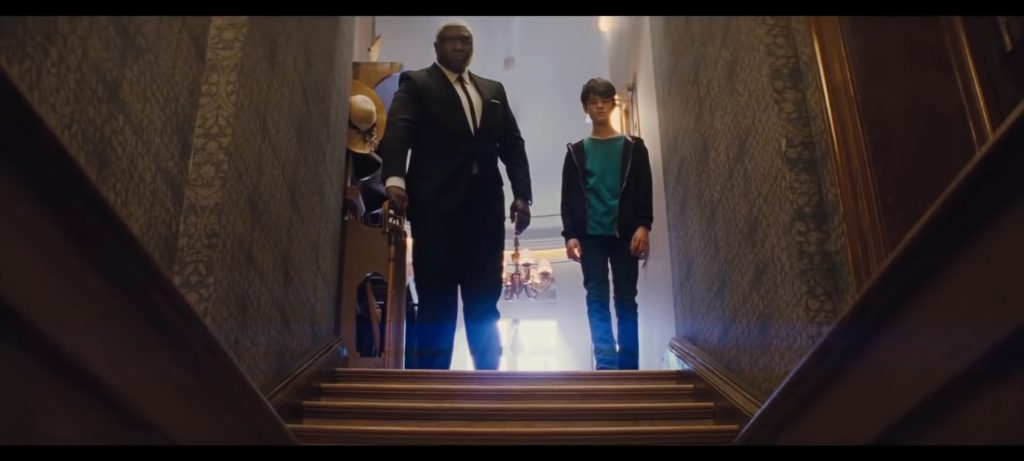
Artemis Fowl needing to be shown things and have things explained to him is a gaping chasm of characterisation away from the boy we met in the books. Without seeing the full movie, it’s hard to say – but it feels as though Artemis’ intelligence has been reined in to make him more likeable and relatable.
This will be a huge disappointment to fans of the books, who knew Artemis Fowl as a broadly unrelatable and unlikeable character – he wasn’t supposed to be someone for the reader to project onto, but instead someone for them to marvel at. Not the Watson of the story, but the Holmes. Perhaps, actually, the Moriarty. (“Holmes, Moriarty, they both look the same with the flesh scorched off their skulls”, as Julius Root would elegantly say.)
In the movie, it would also appear that Artemis Fowl I, our protagonist’s father, is still present at the start of the story and is later kidnapped and then rescued. In the books, Artemis Senior makes no appearance until the second installment, the Arctic Incident. The effect that this will have on Artemis Junior’s motivations through the movie is something we’ll have to wait to see.
The other major change from page to screen lies with Holly Short. Her first line in the trailer is, “And I’m Holly Short, your ally on the other side.” This one line made me wince so hard I think I pulled a muscle. In the books, Artemis and Holly’s relationship begins with Artemis kidnapping Holly. Relations between them stay frosty for a few books to come. Her mistrust of Artemis is emblematic of the tension between the fairy realm and the “Mud People”, the human race.
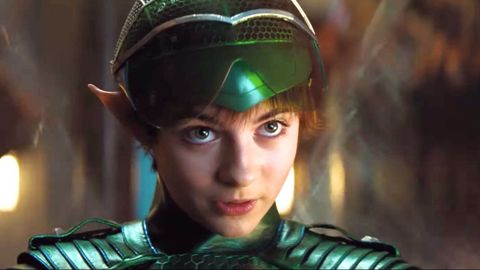
This conflict plays a huge part in making the world of the fairies feel real. They aren’t cute little beings, there to help humans; they are their own complex society of people, with their own systemic problems and their own agendas. Holly’s path intersecting with Artemis’ own is something that happens because Holly was attending to her own business, while Artemis was attending to his. Neither was a support for the other. They each had their own fully-realized and separate motivations, which made their relationship all the more fun to read.
At the core of the Artemis Fowl book series is the idea that two separate entities – a young boy, and the entire supernatural world – are more dangerous, more advanced, and more weaponized than most people could possibly imagine.
The iconic line from the first book, the one written in large letters on covers and posters, was “Stay back, human. You don’t know what you are dealing with.” The words are spoken by Captain Holly Short and she’s right: young Artemis didn’t know what he was getting into when he kidnapped her. Artemis imagined he would be able to extract what he wanted from Holly Short and move on, when in fact he would end up bound to Holly and to the world of the fairies far more tightly than he guessed.
The irony, though, is in the fact that Captain Short herself had no idea what she was dealing with when she met Artemis Fowl. Throughout the books, his intelligence continues to surprise her – much to her chagrin, of course. Neither Holly nor Artemis thought much of each other when they met, and that’s the whole point. That’s the arc of their relationship. They’re two people – and through them, two worlds – who challenge each other, fight each other, earn grudging respect for each other, and eventually come to the point of trust and friendship.
It’s a narrative that’s hard-earned. It burns slowly. It’s compelling and never hasty. The enemies-to-friends trope is executed magnificently and nowhere is this accomplishment more clear than in the first two books – the initial hatred Holly has for Artemis, the lack of respect and coldness that he shows to her, which gently melt into an uneasy truce with brief moments of genuine care. To rush through this is to cut out something that’s at the very heart of the Fowl story as we know it.
Overall, this trailer feels as though it’s for a movie that doesn’t believe in itself. Not trusting in its own ability to gain a sequel, it’s rushing through the greatest hits of the Artemis Fowl canon: Artemis’ father being rescued, Artemis and Holly coming to trust each other, Artemis’ shift from cold and uncaring to likeable and genuine.
The problem with throwing good moments from the books all together on a screen, without build-up or history, is the high possibility that none of them will feel earned – and so none of them will have the emotional resonance that the books gave us.
Not all changes are an evil, and adaptions that make free with their source material can be huge successes in their own right. How to Train Your Dragon, for example, is a movie franchise aimed at a similar audience that differed hugely from the books, but which has had a generally very positive response. This isn’t the only upcoming adaption of a beloved fantasy franchise that’s been subjected to some controversial changes, either: Terry Pratchett’s fantasy stories have been made into a TV show, The Watch, also set to hit screens in 2020.
It’s entirely possibly that the alterations to Pratchett’s work and also to Artemis Fowl were made to allow the story to breathe on screen, and as a fan of transformative works, I have to make an effort to permit the story to be different but still very good. Only time will tell if the effort will be worth it.
Author: Em Rowntree
I’m a non-binary writer, teacher, and cat-lover from the UK.
Help support independent journalism. Subscribe to our Patreon.
Copyright © The Geekiary
Do not copy our content in whole to other websites. If you are reading this anywhere besides TheGeekiary.com, it has been stolen.Read our
